The Road of Beasts, Rock Stars and Kings
“King’s Road is a wilderness of stoned harlequins” – Christopher Gibbs, antique dealer
King’s Road. Today the name is synonymous with upper class living, epicurean eateries and charismatic Chelsea Pensioners but behind the luxury facade lies a rather eclectic, exuberant and somewhat bohemian past.
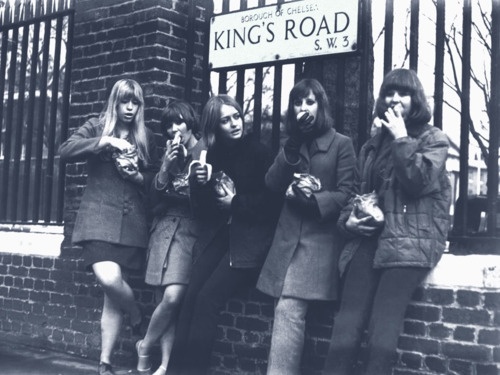
The most famous thoroughfare in Chelsea was originally laid out under the order of King Charles II, acting as a private road between Buckingham House and Kew. It became accessible to the public in 1830 and by the 17th Century the two-mile stretch was known as the “Village of Palaces” housing more than three thousand people within two very distinct areas; the affluent residents close to Sloane Square and the “poor quarter” towards Fulham Road.
There are a number of properties dating from this time that have been recognised by the English Heritage due of their famous occupiers. These include Number 213, which was lived in by film director Sir Carol Reed (1948-1978) and 215 that housed the reported composer of Rule Britannia, Thomas Arne.
From the mid-1950’s King’s Road was abound with flamboyant designers, artists and socialites; their colourful lives earning them the media-given “Chelsea Set” title and putting the area on the map. This was due in part to the efforts of Mary Quant, her King’s Road shop ‘Bazaar’ and the introduction of the “mini-skirt” which became symbolic of the forthcoming decade and led journalist Loudon Wainwright to write, “the town was positively atwinkle with thighs”.
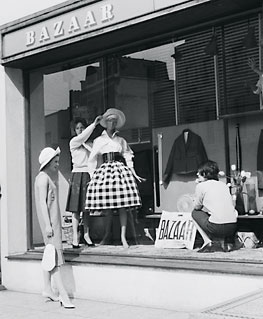
Bazaar – The shop belonging to Mary Quant
King’s Road was electric with life and the Set often visited the risqué Chelsea Palace Theatre on the corner of Sydney Street. In 1957 the Palace began releasing films and was renamed the Chelsea Granada before being leased to Granada TV where some of the world’s finest musicians - including Ella Fitzgerald and Billie Holiday - performed. The building was demolished in 1966 and is now home to the furnishings store, Heals.
At 152 King’s Road sits The Pheasantry, another iconic building earning its name from the Royal gamekeeper Samuel Baker who resided there. Built in 1769, over the years the building housed a dance studio for prima ballerinas, an exclusive members club, a nightclub where Andrew Lloyd-Webber and Tim Rice discovered Yvonne Eliman (the lead singer in Jesus Christ Superstar) and post-war the upper floors were let to Germain Greer, Eric Clapton and Tim Whidborne to name but a few. Our very own Andrew Quested has been involved in the acquisition of the building for a client too.
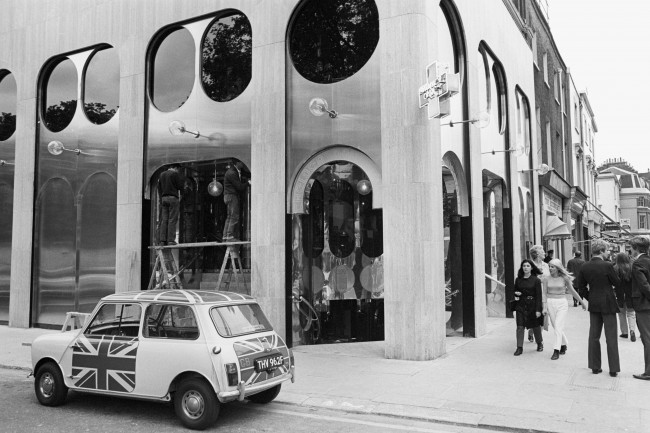
The Chelsea Drugstore
By the time the 1960s appeared, cheap rent and enviable lifestyles had drawn fashion graduates and bohemian artists to the area and a weekend stroll along King’s Road often meant hobnobbing with music royalty from the Rolling Stones and The Beatles. The Mod culture was born and brought with it the infamous Chelsea Drugstore.
The building, which took inspiration from Le Drugstore on Boulevard St Germain in Paris, was a gaudy mix of stainless steel, brass and mirrors and offered access to bars, food stores, a chemist, record shop and boutiques spread over three floors open 16 hours a day, seven days a week. The appeal was enormous and unsurprisingly the residents complained, leading to its closure in May 1971 but not before it was immortalized in The Rolling Stones 1969 hit song You Cant Always Get What You Want. Nowadays it leads a somewhat less romantic life as a McDonalds restaurant.
To emphasise how wacky these times were, in 1969 two gentleman bought a lion cub from the Harrods Department Store in Knightsbridge and lived with him in a flat above their furniture shop, Sophisticat at 475 King’s Road. Christian was often spotted being walked along the Road on a lead before being released into the Kenyan wild a year later.
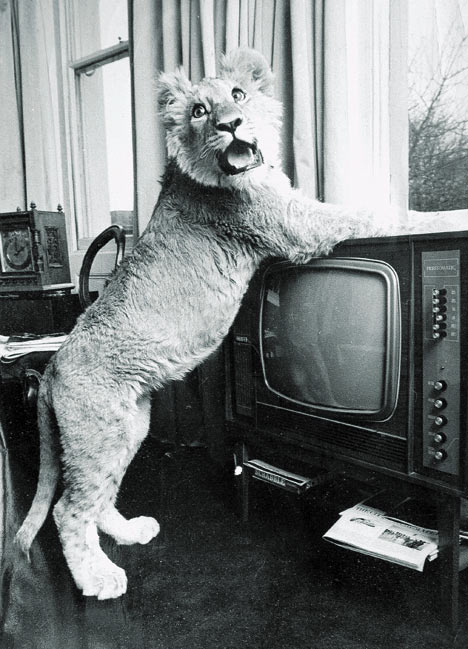
Christian the Lion cub
King’s Road was in its hay day and everyone who was anyone wanted to be seen there. A young Vivienne Westwood set up a store called Sex at number 430 between 1974 and 1976 selling not only designs by Malcolm McLaren and Westwood herself but also fetish and bondage wear with an emphasis on confronting the social and sexual taboos of the era. The clientele included the members of the Sex Pistols and the shop led the way for the Punk movement.
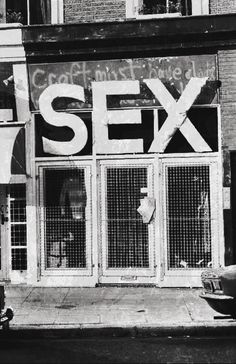
Vivienne Westwood’s store Sex
Today King’s Road is less Sex and far more sophistication having traded in Rock and Roll glamour for trendy boutiques, upmarket designer stores and high-street staples including the very first UK based Starbucks in 1999, Peter Jones Department Store and the Saatchi Gallery.
